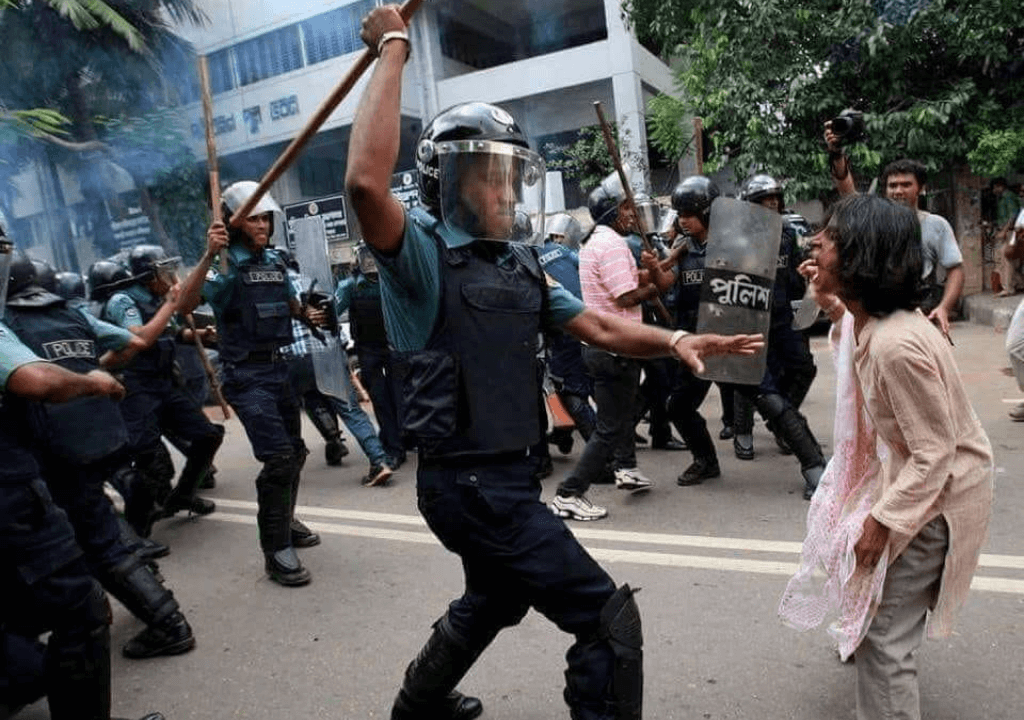Bangladesh has witnessed a significant uprising against the government in recent weeks. The uprising nearly escalated to the level of a civil war with direct confrontations in the streets. On one side, police, paramilitary forces, and supporters of the ruling party are aligned, while on the other side, students and citizens opposing the authoritarian government are gathered on a large scale. Cities, including the capital Dhaka, have experienced deadly violence, with reports of almost 200 deaths and over 1,000 serious injuries.
Sheikh Hasina, daughter of Bangladesh’s founder Mujibur Rahman and Prime Minister since 2009, has successfully cracked down on the situation and prevented a potential civil war. But The seasoned politician, understanding the mood of the state, is taking measures to regain control over the judiciary, executive, military, and public sentiment. The image of the weeping Prime Minister in front of the dead bodies was a significant move to restore her deteriorating image.
The reintroduction of quotas for the descendants of participants in the independence war in government jobs was widely viewed as a move to appease members of the Awami League, a party born out of Bangladesh’s independence struggle. This decision sparked widespread outrage on campuses, as students already dealing with an economic downturn and high youth unemployment saw one of their few chances of securing a stable job being taken from them, with thousands of civil service positions to be filled through patronage rather than merit.
As support for the protests grew, a violent, state-led crackdown began, and campuses descended into bloody battlefields, resulting in about 200 deaths. The Rapid Action Battalion, an elite unit of Bangladesh’s police forces, fired teargas from helicopters on crowds below, while army forces fired at protesters with what appeared to be light machine guns. Government-backed violent student groups and armed riot police, operating under shoot to kill orders, used violence and deadly weapons against peaceful protesters, resulting in some of the worst clashes in Bangladesh in over a decade.
The strength of the state-led crackdown has galvanized many on the ground to see the protest movement as no longer just about quotas, which were scaled back by the court on Sunday. While this decision was made by the courts, it was seen by many as a thinly veiled political maneuver by Prime Minister Sheikh Hasina, who has a tight grip over the judiciary. The movement has grown into a civilian-led effort to oust Hasina, who has ruled with an increasingly authoritarian grip since 2009.
The prime minister has been ruling for 15 years and has spent so much time strengthening her hold over state mechanisms that she believes she has become invincible. In statements this week, widely criticized by protesters, Hasina argued that the violence was provoked by political opposition and Islamist groups hostile to Bangladesh as a nation, prompting her to send paramilitary and police forces to protect the students. Over 2,500 members of the political opposition including students have been arrested.
The growing authoritarianism of Hasina’s rule, including the past three elections widely documented as rigged, had been brewing a civilian “Outburst”. These protests underscore the struggle between democracy and Hasina’s move toward complete totalitarianism. Although there has been a significant trust deficit between Hasina and the people for a while, this is the first time we are witnessing defiant calls for her removal on such a large scale.
An uneasy calm settled over Bangladesh after the court ruling on Sunday reduced the quotas to 5%. Student leaders temporarily halted all demonstrations, expressing a desire to avoid further bloodshed and presented Hasina with a set of demands, including an apology and justice for those killed in the violence. Student activists said further action was planned but hindered because many organizers were in the hospital or had been detained by police, with some alleging torture. Others confirmed they had been put under de facto house arrest, with all forms of communication cut off, and were under constant surveillance from a counter-terrorism police unit notorious for involvement in enforced disappearances.
Hasina won this time, but the prime minister is getting weaker day by day. Next time, neither a curfew nor the army will be able to suppress the people.








